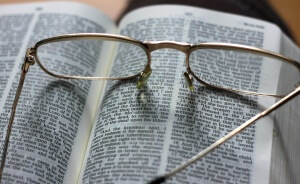Religion and Millennials: Are the Lines of Religion Blurring in the United States?
April 1st, 2016

The United States contains the more individuals who identify as Christian than any other country in the world.
There are few people who would deny that the first Europeans to travel to the land that would become the United States of America were fiercely religious. They believed so strongly that their way of life was the correct one that they fled persecution in their homelands to find ground where they could plant roots and live the way they wanted to live without consequence. After the United States declared independence and defeated the British, the religious natures of the founding fathers again came into play – but not in the same way as the first Pilgrims. The leaders of the United States at that time determined that all religions should be protected by prohibiting the government from declaring any single religion to be the “right” one.
A History of Religion
While intentions of the founding fathers to protect citizens from religious persecution has endured, throughout much of our history the majority of citizens of this country identified as Christian. There are numerous groups and branches of Christianity in the United States’ history, but the fact remains that many believed (and continue to believe) that this country is a Christian nation; not the nation of myriad faiths as envisioned by the drafters of the Constitution. As recently as 2011, polls showed that the majority of religious American citizens identified as some form of Christian. Further, less than 2% identified as Jewish and less than 1% identified as Muslim.
Millennials, a New Era?
According to a more recent study, the latest generation of adults has increasingly indicated that they no longer identify as Christian. Rather than switching religions or becoming more religiously diverse, however, this generation has found that they are instead finding more comfort with no organized religion at all. In fact, approximately one third of Americans in today’s society identify as “unaffiliated, agnostic or atheist.” This does not mean that millennials are necessarily less spiritual than their parents or grandparents, but that they are more skeptical of organized religion. In fact, this study showed that almost 70% of the individuals who responded to the survey as “unaffiliated” did so without also identifying as agnostic or atheist. The meaning of these numbers is still being analyzed, but one theory is that faith is still alive and strong in younger Americans, but trust in the traditional organized religions of their parents is no longer as strong as it once was.
Into the Future
Regardless of the fact that the United States still contains the most individuals who identify as Christian than any other country in the world, news headlines continue to focus on the rise of other religions in the country. This focus sometimes shines a negative light on any belief system other than Christian. However, when considered in context of where the faith of younger generations of Americans are heading, the doom and gloom of change gives way to a much more natural progression that hearkens back to the days of our founders; a time when religion was important, but more importance was placed on an individual’s right to practice any faith without interference. The Universal Life Church will continue to watch our country’s ever-changing religious environment and ensure that the protections of our Constitution remain steadfast.


